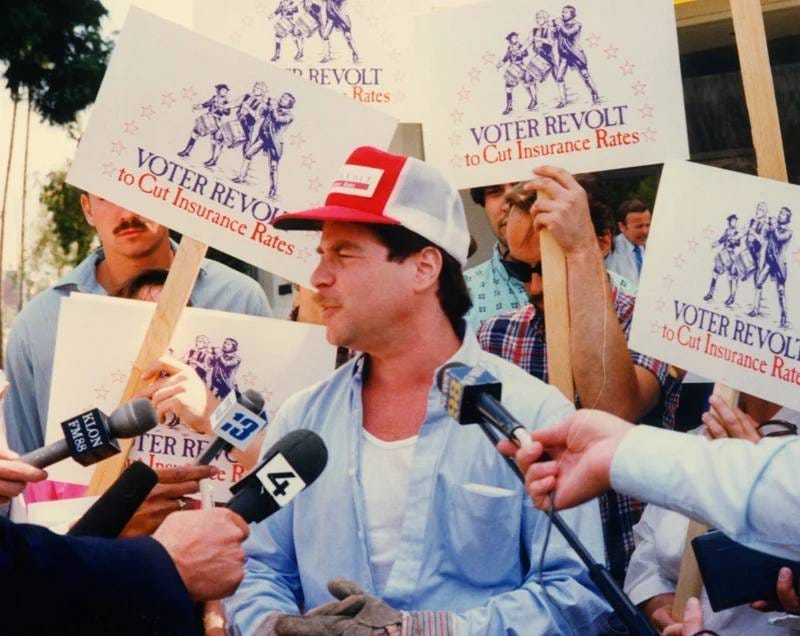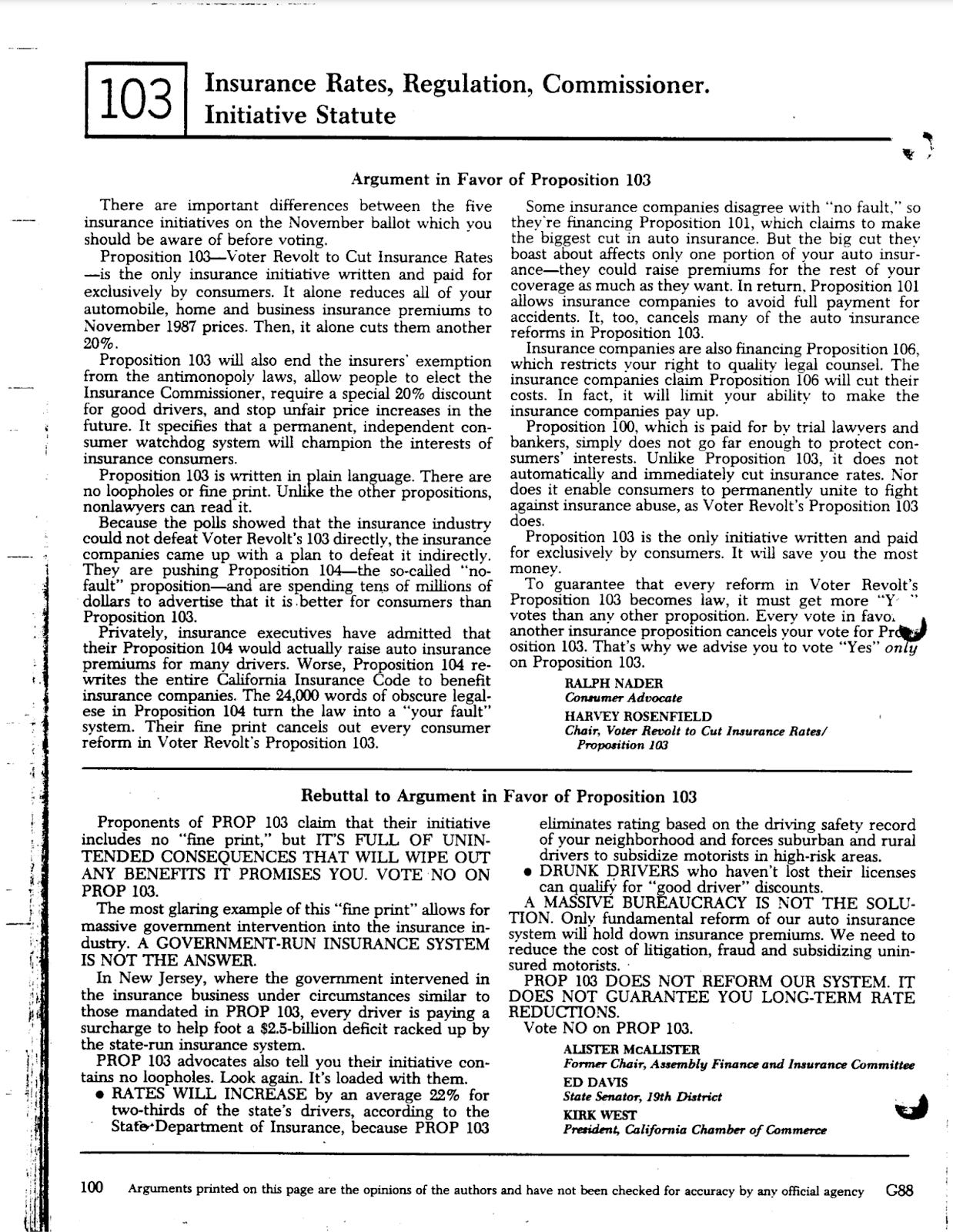California's insurance crisis: the cash cow slowing climate adaptation
How climate change, special interests, and outdated rules are leaving Californians vulnerable while enriching one group
What does insurance have to do with my normal data analytics/AI/politics/marketing beat? Read on…
California's homeowners insurance market is in trouble, and a consumer advocate group is slowing down solutions that might endanger tens of millions of revenue for it.
Seven of the top twelve insurance companies have stopped selling new policies in California, making it harder for residents to protect their homes and complicating real estate transactions.
The crisis is due to the intersection of climate change, inflation, and California’s unique insurance rules. It’s no secret that California’s ballot measure system, where individual laws are put before voters to be approved, is often dominated by special interests. I was surprised that those insurance rules, which ban the use of future-looking techniques like predictive modeling and AI and institute multiple other complicated rules that slow things down, date back to a ballot proposition, Prop 103, passed in 1988. I was doubly surprised that a “consumer advocate” group has earned more than $18 million in fees from a unique system created by the measure. That group was founded by the author of Prop 103 and pays him $450K/year. Now, as Prop 103’s once-well-intentioned rules are clearly past their prime, he is trying loudly to slow down needed fixes and, it seems, protect his income.
I have no ties to insurance companies or personal grievances. This is just a wild story of how personal incentives, political realities, climate change, a housing crisis, and data are colliding at just the wrong time for Californians.
The origins of Proposition 103
In 1988, Harvey Rosenfeld, a lawyer and political activist, worked with his mentor Ralph Nader to write and promote Proposition 103, billed as a measure to lower rising auto insurance costs. Voters approved it by a narrow two-point margin. The measure forced some quick price cuts, limited how prices could be set, and created the elected position of California Insurance Commissioner. It effectively banned using predictive modeling to set prices, which wasn’t a big deal when driving behavior was the main concern.
Prop 103 added two special rules. First, it created a public comment mechanism, which let regular people or their “representatives” call for hearings on price changes. Second, it made it almost impossible for elected California lawmakers to change any of its rules. These rules sound innocuous but subvert the democratic process. The first creates a parallel system to that of the Insurance Commissioner’s judgment in case voters were to err in picking a Commissioner, and the second limits the ability of voters’ elected representatives to modify rules as situations change.
Now, Rosenfeld is trying to keep this dated system and its revenue in place
The public hearing system established by Prop 103 still exists, but today, almost all complaints are filed by only one entity: Consumer Watchdog. Since 2003, the first year for which records are available online, Consumer Watchdog has captured $18 million in compensation from the state for their work filing claims. Over the last ten years, Rosenfeld himself has taken home $5 million in legal fees.
Consumer Watchdog claims they’ve saved Californians more than $6 billion. As detailed by Sam Dean in the LA Times, this figure is based on a crude calculation that ignores any negotiation done by the Department of Insurance, the possibility that insurance companies inflate their requests expecting challenges, etc. Still, as Dean writes, Californians have historically paid lower insurance rates than other states. In the past, insurance companies may have accepted lower profits to access the vast California market, but the risk picture is changing.
Even if Consumer Watchdog saved consumers money in the past, the current situation demands a more flexible approach. Insurers need to be able to adapt quickly and use predictive modeling, AI, and other available tools to keep up. Insurance Commissioner Ricardo Lara and Governor Newsom are quickly scrambling to fix California’s insurance markets, but Rosenfeld is fighting them, saying their actions violate Prop 103. In reply, Lara’s office says Consumer Watchdog is hiding that they have made millions approving rate increases while some Californians can’t get insurance.
Going towards an unknown future
The net result of these needed changes means insurance prices will go up to match the new level of risk. Expensive insurance is better than no insurance and provides price signals to homeowners in areas that may be less viable in a new climate reality. A new ballot measure can override the old one, but whether voters will approve a measure that could lead to higher prices remains uncertain.
California's homeowners insurance crisis is a complex issue where personal incentives, political realities, the housing crisis, and climate change converge. As officials scramble for solutions, voters must stay informed — even when it’s about a subject as dry as insurance regulation.





